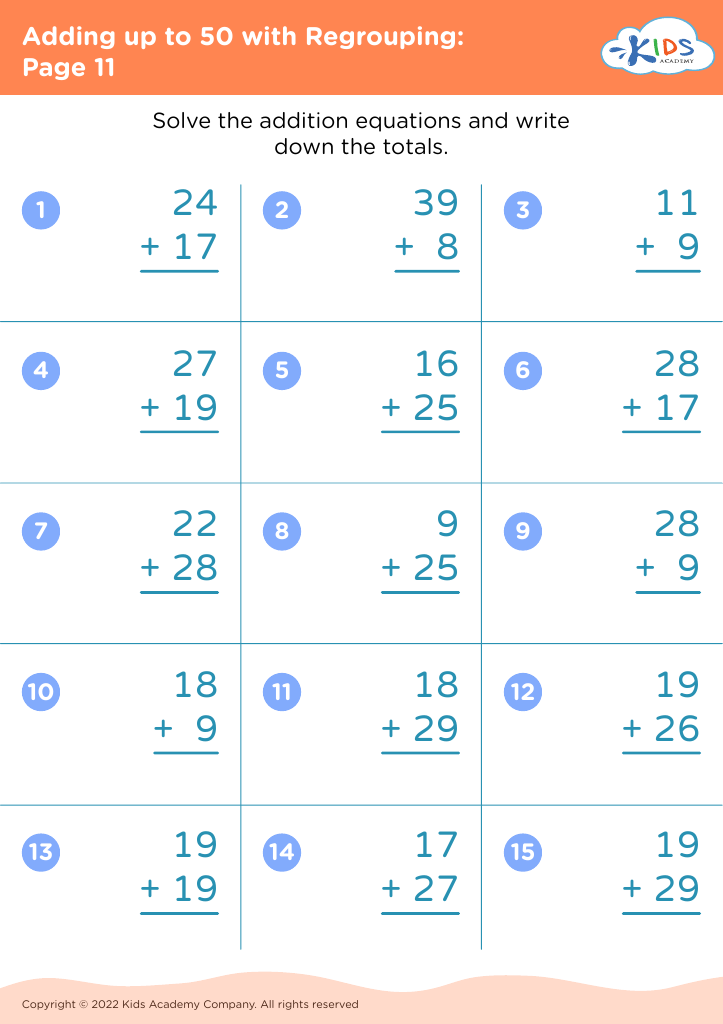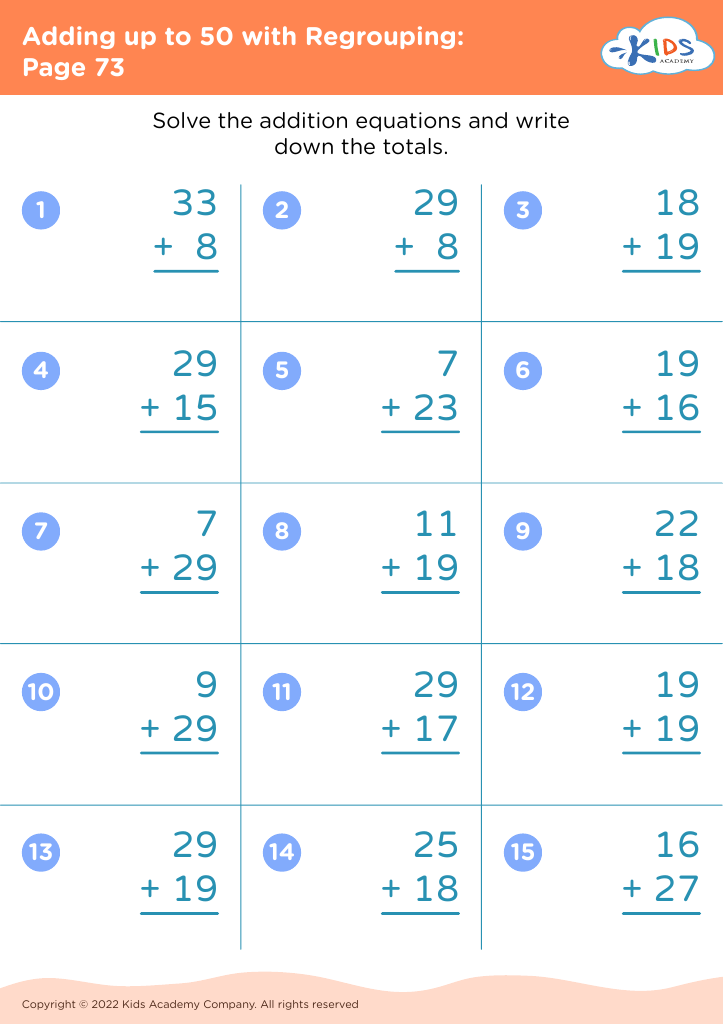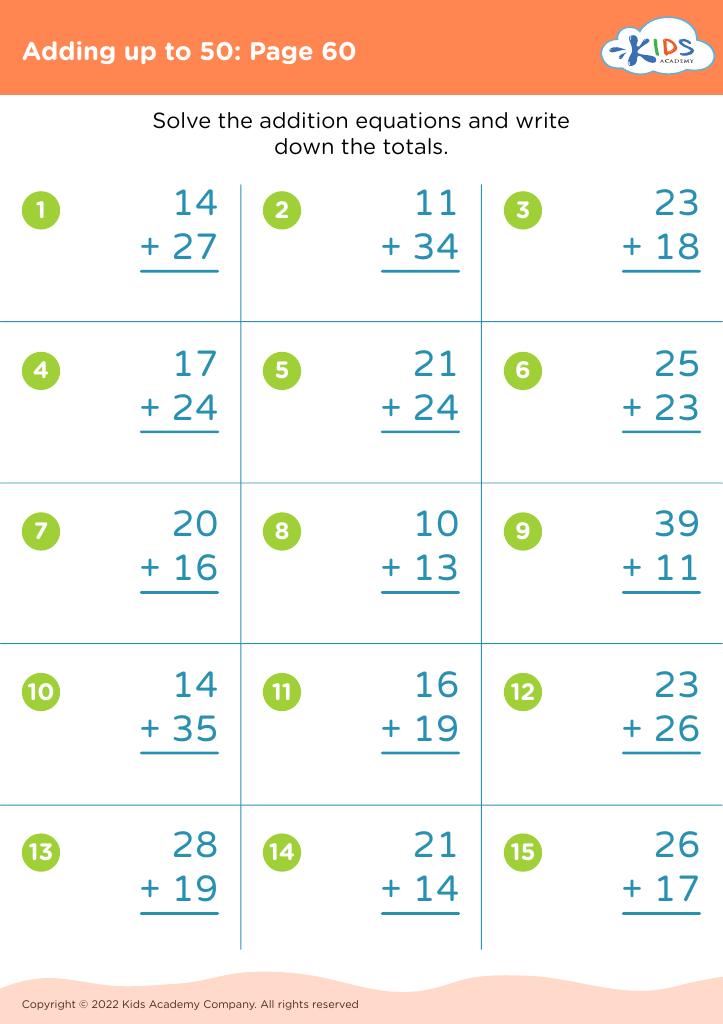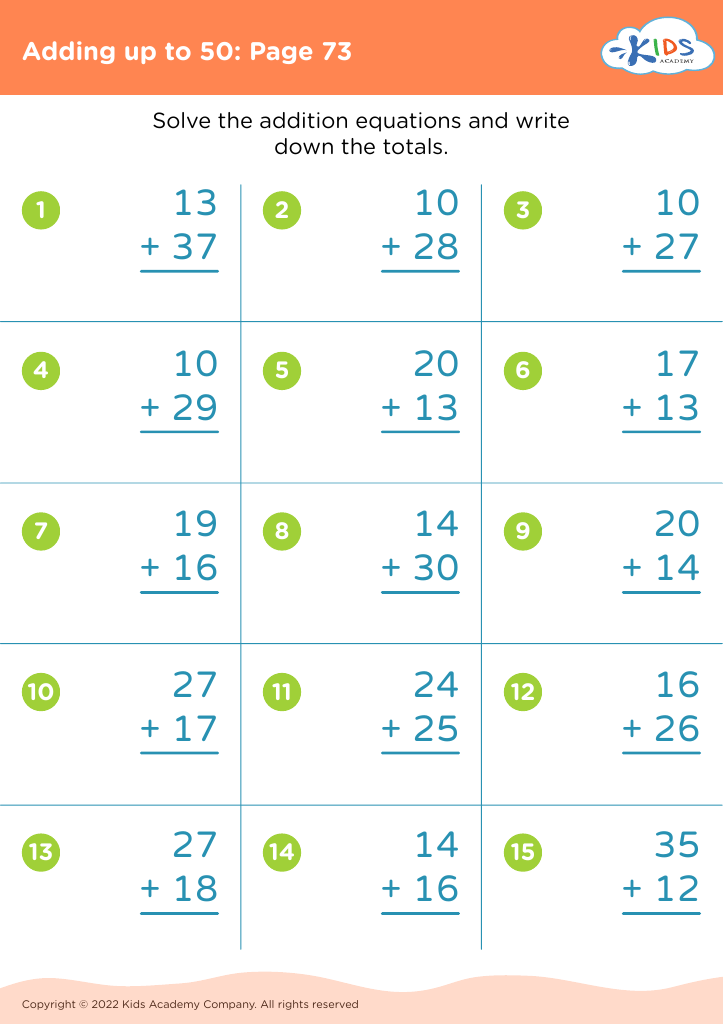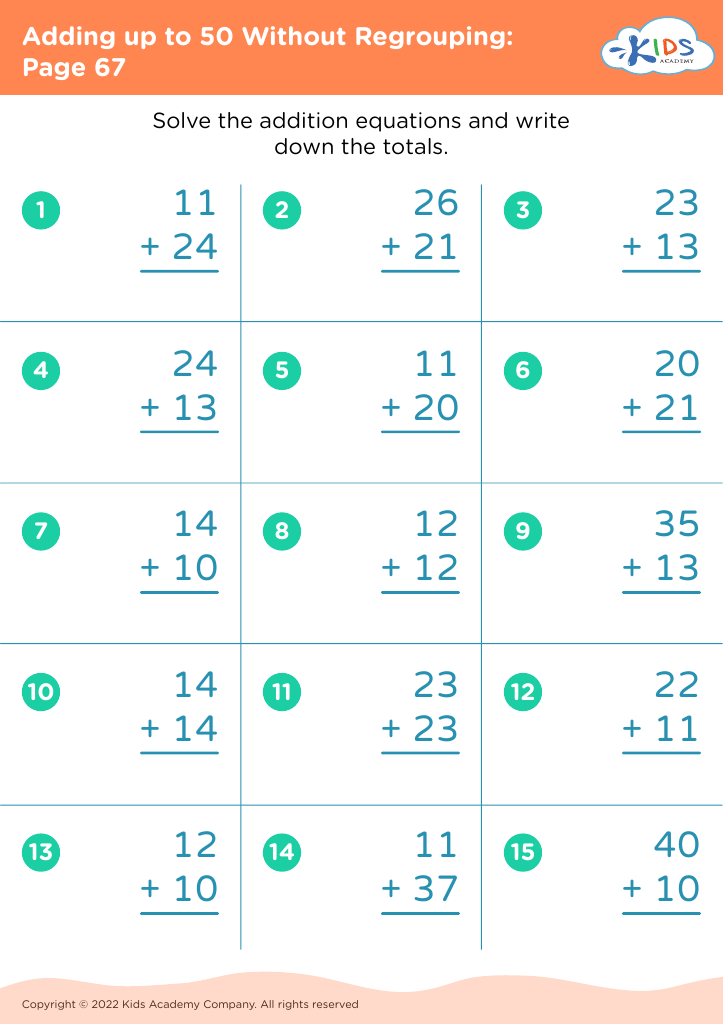Shape Recognition Adding up to 50 Worksheets for 7-Year-Olds
9 filtered results
-
From - To
Enhance your 7-year-old's mathematical skills with our "Shape Recognition Adding Up to 50 Worksheets." Designed to make learning fun, these engaging worksheets combine shape recognition with addition, promoting critical thinking and problem-solving abilities. Children will identify various shapes while practicing addition problems up to 50, ensuring they build a solid foundation in math. Each worksheet offers colorful visuals and creative exercises that cater to a child's learning needs. Perfect for schoolwork or homework, these resources help foster a love for learning and confidence in math. Download our worksheets today and watch your child excel in both shape recognition and addition!
Shape recognition and addition skills are crucial for 7-year-olds as they lay the foundation for advanced mathematical concepts and problem-solving abilities. By mastering shape recognition, children learn to identify and differentiate between various shapes, which aids in spatial reasoning—a fundamental skill needed in areas like geometry and visual arts. This foundational knowledge fosters confidence in mathematics, encouraging children to engage more readily in lessons involving shape-based concepts, such as symmetry and area.
When combined with addition exercises where children learn to add shapes or groups of objects to create sums up to 50, it enhances their understanding of number relationships and arithmetic operations. This integration reinforces their mathematical intuition, helping them see real-world applications of math and develop critical skills like estimation and grouping.
Moreover, these activities improve fine motor skills through hands-on experiences, especially for younger learners. By engaging with shapes and basic addition in practical contexts, children develop a positive attitude towards learning, leading to increased participation and enjoyment in mathematics. Ultimately, when parents and teachers emphasize shape recognition and addition, they provide children with essential tools to navigate more complex mathematical ideas in the future, laying the groundwork for lifelong learning.


